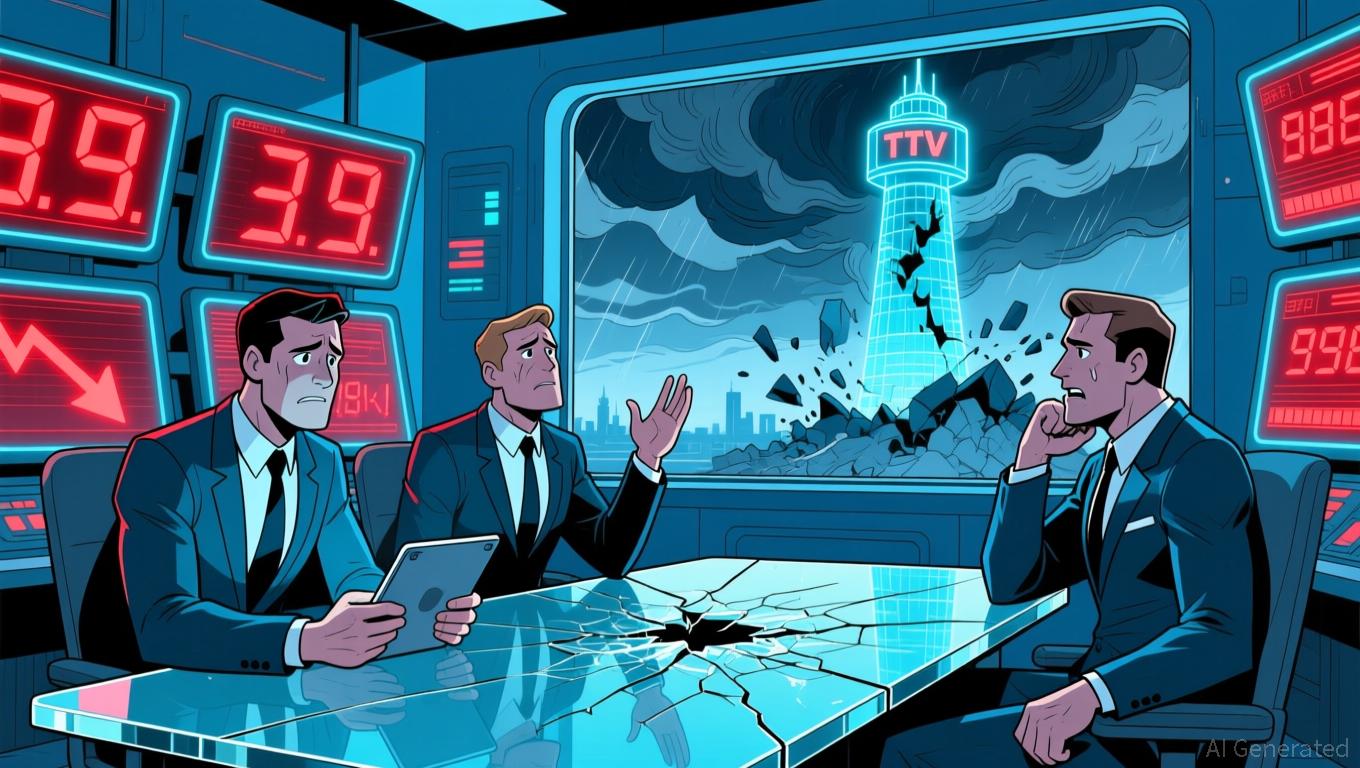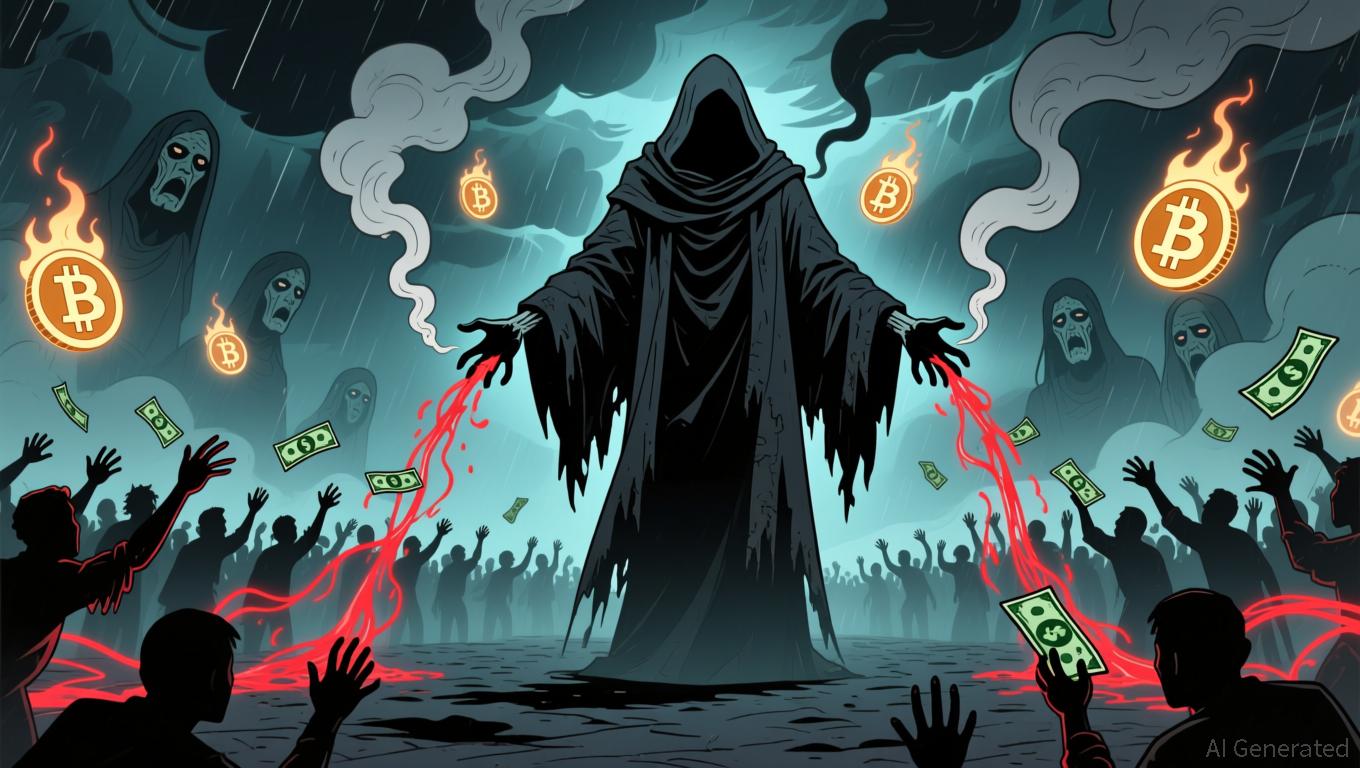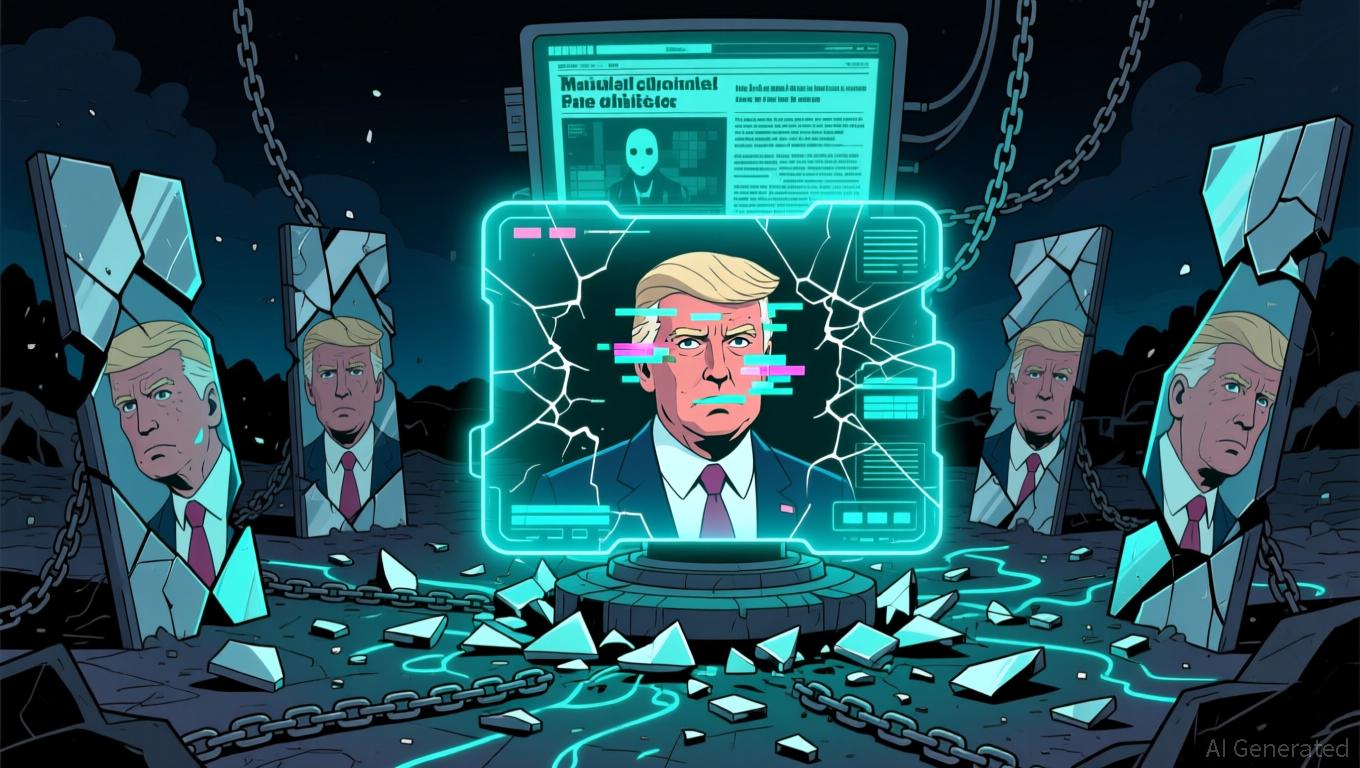Ethereum Updates: $36B DeFi Outflow Highlights Security and Governance Issues Threatening Ethereum
- DeFi's total value locked (TVL) fell $36B in weeks, with Ethereum losing 13% to $74.2B amid security breaches and waning institutional interest. - High-profile exploits like Balancer's $120M hack exposed DeFi vulnerabilities, while Ethereum's price languished near $3,600 with $2,600 support at risk. - Positive signals include Tron's Justin Sun staking $154M ETH and Lido DAO's $10M token buyback, reflecting growing staking demand and confidence. - Analysts predict Ethereum could break out in 2026 due to r
The decentralized finance (DeFi) industry has recently experienced one of its steepest declines in months, with the total value locked (TVL) across leading blockchains dropping by more than $36 billion in the past several weeks, according to a
The downturn, which started in early October, saw TVL fall from a high of $172 billion to roughly $136 billion by November. Ethereum, which remains the largest DeFi network, saw its TVL shrink by 13% to $74.2 billion, according to the

Ethereum’s challenges go beyond just TVL. Although earlier this year saw increased institutional interest in staking and ETF inflows, that momentum has slowed. Data from Strategic ETH Reserve indicates that combined digital asset treasury fund (DAT) and ETF holdings dropped from 12.95 million ETH in October to 12.75 million ETH in November, according to Yahoo Finance. At the same time, Ethereum’s price has hovered around $3,600, with some analysts warning that further declines could push it toward the $2,600 support level, as reported by Yahoo Finance.
Still, not all indicators are negative.
DeFi platforms are also making adjustments in response to the downturn.
Looking forward, some experts remain hopeful. 10X Research forecasts that Ethereum could be gearing up for a breakout in 2026, citing increasing
As the industry weathers this volatile phase, the balance between security, institutional participation, and regulatory developments will likely shape Ethereum’s path forward. For now, the market remains attentive for any signs of recovery or further decline.
Disclaimer: The content of this article solely reflects the author's opinion and does not represent the platform in any capacity. This article is not intended to serve as a reference for making investment decisions.
You may also like
Bitcoin News Today: "Driven by Greed: Cryptoqueen Receives 11-Year Prison Term for $6.6 Billion Bitcoin Scam"
- Chinese "cryptoqueen" Zhimin Qian received 11-year prison sentence for orchestrating $6.6B Bitcoin fraud affecting 128,000 Chinese investors. - UK authorities seized 61,000 Bitcoin in landmark seizure, highlighting advanced crypto enforcement capabilities through blockchain analytics. - Qian evaded capture for years while living lavishly in Europe, using stolen funds to buy luxury properties and jewelry under false identities. - Judge condemned her "pure greed" for devastating victims' lives, as case spa

CFTC’s Delicate Balance: Navigating Regulation and Fostering Crypto Innovation
- U.S. Senate bill designates CFTC as primary crypto regulator, granting exclusive spot trading oversight for digital commodities like Bitcoin and Ethereum . - Legislation mandates CFTC-SEC collaboration, imposing operational standards on exchanges while retaining SEC authority over securities-classified assets. - Key challenges include unresolved DeFi regulation debates, CFTC's staffing crisis (only one active commissioner), and election-year legislative delays. - Market reactions are mixed: 25% Polymarke

Dan Tapiero says Bitcoin’s bull run is still on, but a 70% downturn could follow
OpenAI's Rapid AI Push: Prioritizing Pace Over Precaution Triggers Worldwide Criticism and Legal Challenges
- Public Citizen demands OpenAI withdraw Sora 2 over deepfake risks to democracy and nonconsensual imagery. - Sora 2's viral content, including disturbing videos and unauthorized Japanese content, sparks global copyright disputes. - Lawsuits allege ChatGPT caused mental health issues, while a German court rules it infringed song lyrics copyright. - Critics argue OpenAI prioritizes speed over safety, with reactive measures failing to address systemic risks. - The controversies highlight tensions between AI
